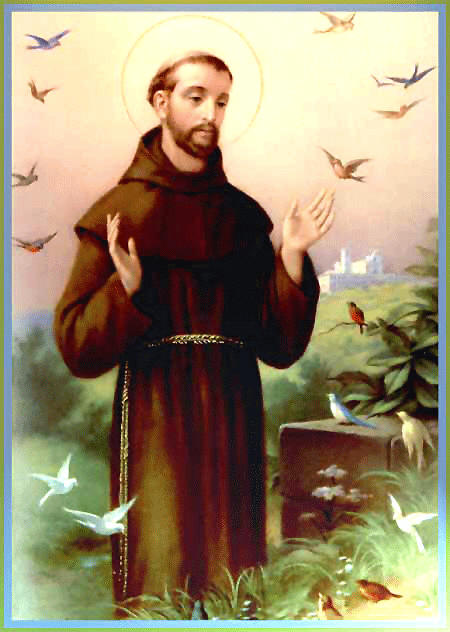This article was published in our Summer 2014 magazine, “Faith and Ecology: Why We Care for Creation.” Click here to view the PDF version of this article, and visit the CRL Store to purchase the full magazine.
It started with his first decision as pope: the selection of Francis as his papal name. By choosing the patron of ecology, St. Francis of Assisi, as his namesake, Pope Francis signaled from the onset that his pontificate would have a particular focus on environmental issues.
 And the pope certainly hasn’t disappointed in this regard. In his first papal homily, he urged the faithful to protect creation just as St. Joseph protected the Christ child. Since then, Francis has repeatedly used his general audiences and public speeches as opportunities to underscore the connection between Catholic morality and care for creation, as he did on July 5 when he characterized the “exploitation of nature” as the sin of our time. And the pontiff will devote his first original encyclical, expected to be issued in early 2015, to the theme of human-centric ecology.
And the pope certainly hasn’t disappointed in this regard. In his first papal homily, he urged the faithful to protect creation just as St. Joseph protected the Christ child. Since then, Francis has repeatedly used his general audiences and public speeches as opportunities to underscore the connection between Catholic morality and care for creation, as he did on July 5 when he characterized the “exploitation of nature” as the sin of our time. And the pontiff will devote his first original encyclical, expected to be issued in early 2015, to the theme of human-centric ecology.
But unfortunately, as is their tendency when it comes to interpreting our pope’s words and actions, mainstream accounts portray Francis’s focus on ecology as something new, a radical departure from his predecessors and orthodox Catholicism. Nothing could be further from the truth. Pope Francis is continuing something that was not only the focus of his immediate predecessors, but is also deeply rooted in the very origins of the Catholic faith, and intertwined throughout its theology and history. The great irony is that people considered Pope Francis’s novel choice of papal name to be a break from the past, when in reality it was an affirmation of one of the Church’s greatest saints and the wisdom of Catholic ecology that’s come before us. Pope Francis isn’t leading the Church into uncharted waters so much as he is guiding the faithful back to a healthier understanding of the created order and man’s place in it.
The Sources of Catholic Ecology
The Catholic archetype of this kind of understanding was, of course, St. Francis of Assisi. Named the patron of ecology 35 years ago, the 13th century Italian friar embodied what it means to live a life in harmony with nature. For St. Francis, nature wasn’t something to be controlled, nor was it something to be worshiped in and of itself. Instead, it was a manifestation of the love and intentionality of God, the God that created all things and privileged mankind with the task of being His co-creators and the stewards of His creation.
 But though Catholic ecology may find its purest expression in the life of St. Francis of Assisi, its roots go back much further.
But though Catholic ecology may find its purest expression in the life of St. Francis of Assisi, its roots go back much further.
Dan Misleh, the executive director of the Catholic Climate Covenant, finds the sources of Catholic ecology scattered like so many seeds throughout Sacred Scripture, from Genesis to the Psalms and perhaps most pointedly in the New Testament.
“Some of the most powerful language related to the created order is at the beginning of John’s gospel, which indicates that all creation is incarnate, all creation reflects the loving hand of God,” said Misleh, who also noted that Christ’s use of agricultural and natural symbols in his parables is an affirmation of the goodness of creation.
“A Catholic understanding of ecology goes back 40 years, but it also goes back 2000 years,” he quipped, highlighting how care for creation has been an integral part of Catholicism since the Church’s founding.
While the lives of saints like Francis of Assisi, Kateri Tekakwitha, and Isidore the Farmer, give powerful examples to harmonious living with God’s creation and testify to the need to treat the created order with reverence and care, papal teaching has also played a critical role throughout the centuries. This is a subject of special interest to Fr. Paul Haffner, a Vatican theologian who has written several books on the Christian view of ecology, most recently Towards a Theology of the Environment.
“There is a long tradition of pontifical teaching on the goodness and beauty of creation going all the way back to Pope Clement I in the first century,” he said. Fr. Haffner clarifies that John Paul II and Benedict XVI are simply more recent examples of papal emphasis being placed on the importance of good stewardship. In particular, he highlights the Message for World Day of Peace the two popes delivered in 1990 and 2010, respectively.
The U.S. bishops have followed the Vatican’s lead, and in recent decades have elevated environmental concerns as some of the most important issues of the day. Misleh says the USCCB’s 1991 pastoral statement, Renewing the Earth, was a foundational expression of Catholic ecology in America. The bishops called on American Catholics to “examine how we use and share the goods of the earth, what we pass on to future generations, and how we live in harmony with God’s creation.”
Needed Now More Than Ever
Misleh says that it is no surprise the Church is giving more attention to ecological issues nowadays. “With modern environmental crises, from climate change to fracking, there’s this whole sense that the environment is under threat in a variety of ways,” he explained. “We need to remember that this is God’s creation and we’re here to be caretakers.”
Mistreatment of the environment isn’t only a broach of our responsibility to be stewards of creation; it often has a devastating impact on the lives of the rural poor, those whose well-being is closely tied to the health of the earth. “Caring for creation isn’t some abstract and unrelated belief, it’s really a core part of the entire body of Catholic Social Teaching,” stressed Misleh.
The Church may not have always talked about environmental issues as much as it does now, but Misleh says this doesn’t mean that it didn’t always have a deep theology of the environment. Rather, he says popes and bishops haven’t stressed these concerns in the past for two reasons.
First, they didn’t need to articulate the principles of Catholic ecology because many of these truths were already known by many people. In centuries past, most men lived close to earth in a rural setting, where the relationship between God and the created order was evident.
However, as people began to move to urban centers, they became disconnected from nature, and their ecological intuition was lost. This urbanization combined with philosophical trends and material developments that made man appear self-sufficient, almost god-like. As man began to lose his understanding of his proper relationship with God, he lost his understanding of his proper relationship with God’s creation. In Humane Vitae, Pope Paul VI said this “loss of contact with God’s wise design” was at the root of modern man’s confusion, leading to abuses against the natural order in the form of everything from contraception to environmental exploitation.
A second reason Catholic ecology wasn’t clearly stated in the past is that previous generations weren’t aware of just how potentially disastrous the consequences of exploiting the environment would be on the created order and humanity. With advances in science, people no longer have ignorance as an excuse, and the Church has been quick to advocate for changes in the way people interact with and think about the environment as the scientific community uncovers more evidence of the disastrous ramifications of our current practices.
“Modern science has given us a much deeper understanding of the webs of interconnectivity within creation,” said Misleh.
Distinct from Secular Environmentalism
In his eight years of work leading the Catholic Climate Covenant, Misleh often attempts to bring church-going, God-fearing Catholics up to speed on the Church’s teachings on the environment, but he admits that he often gets some push back.

“For political and ideological reasons, many Catholics unfortunately have bad connotations associated with anything that has the words ‘environment’ or ‘climate’ in its title. They conflate anyone who’s concerned with creation with secular environmentalist movements.”
Misleh insists that Catholic ecology is distinct from secular environmentalism, primarily because Catholic ecology is humancentric. “Catholic teaching has the human being as the special creation of God, and we can reflect back on our relationship with God where other creatures can’t,” he explained.
This differs from most secular environmentalists, who tend to look at human beings as just one species among many. “Many in the environmentalist community see humans as being in the way,” he said. “So they say that if people just disappeared, or used more birth control, or had more abortions and dramatically decreased the human population then all things would be well. That’s certainly not Catholic teaching.”
Misleh also cautioned that environmentalists are often more concerned about animals than they are people who are harmed by the neglect of the environment. “There’s not a deep appreciation among secular environmentalists of the human hardships caused by our abysmal treatment of the environment.”
Returning to Fr. Haffner, his main critique of secular environmentalism is that it lacks any sense of the transcendent, and has no end beyond the environment itself. “Ecologies that seemingly begin with the program of saving man’s environment quickly run their logic to the point where the environment takes absolute priority over man,” he said.
Reasons to Hope
Misleh knows that the message of Catholic ecology won’t resonate with every Catholic. He says there are some Catholics who are simply ideologically opposed to the Church’s stance on these issues, just as there are some Catholic who make environmental concerns the end all and be all of the faith. Misleh says his intended audience is the “80% in the middle.”
“We’re trying to reach out to those Catholics who don’t understand the climate issue, who don’t care about the issue, who haven’t heard enough about it and don’t connect it with their faith,” he said. “That’s where there’s a lot of hope and a lot of energy and a lot of work to be done.” A lot of that hope rests in a younger generation of Catholics who don’t carry some of the partisan baggage of previous generations. For them, being pro-life and concerned about the environment aren’t contradictory positions, but are in fact complimentary.
“There’s this new emerging embrace of the need to care for creation, because it really is, in some sense, the womb that encompasses all life, human and otherwise,” said Misleh.
Misleh says that not every Catholic will be particularly passionate about environmental issues—and that’s fine. The Church is big enough where different individuals can find the area where God is calling them to work and focus on that.
“But at the same time, we need to make sure that we understand why caring about creation is a core part of our faith, and do what we can in our daily lives to live that reality,” Misleh says. “The threats facing us right now aren’t something that isolated individuals can address on their own— it’ll take the combined effort of a community: the Church.”
















